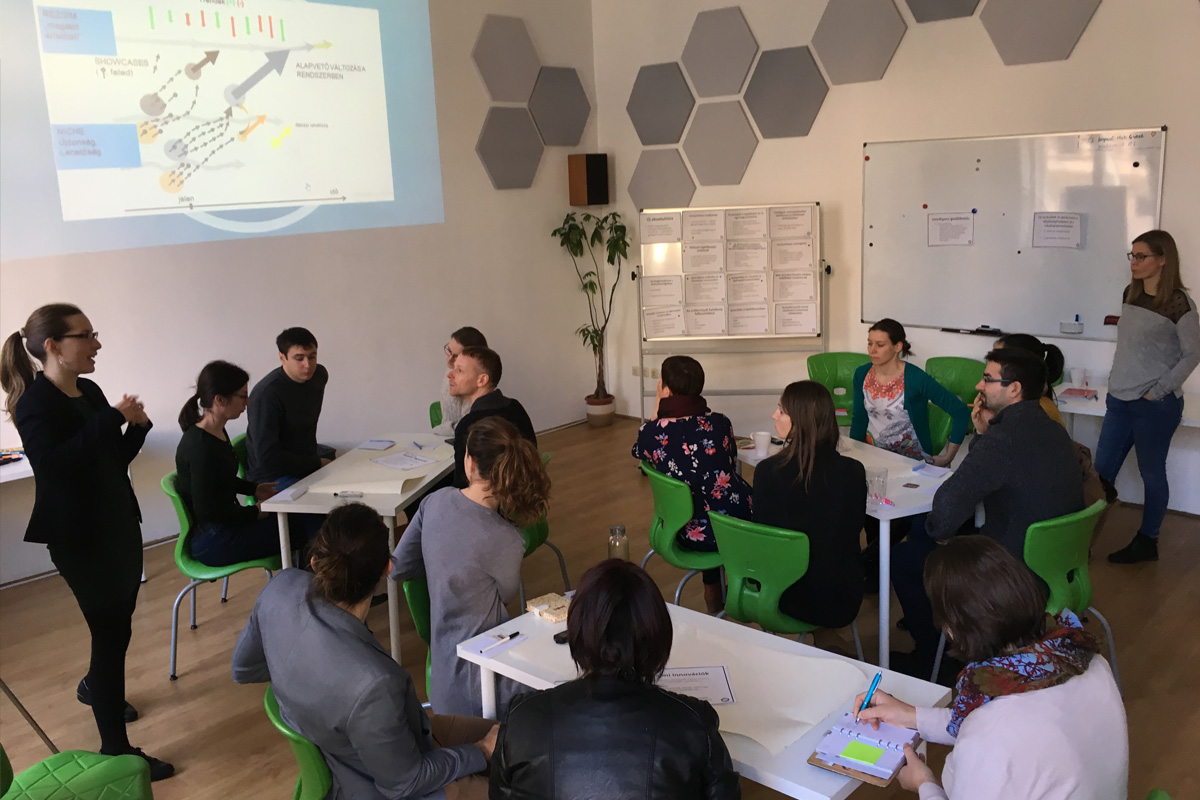EU-funded FIT4FOOD2030 launches innovative toolbox to make food systems more sustainable
Last Updated : 17 November 2020In short:
- The European food systems need a radical change to become more sustainable and resilient, for the health of people and planet, and to respond better to challenges like COVID-19
- To achieve this, research and innovation methods need to become more effective, and involve all relevant actors (a holistic systems approach)
- The EU-funded project FIT4FOOD2030 has developed an innovative toolbox to, to help for policy makers, researchers, research funders, and other food system actors to make food systems more sustainable and resilient
- This toolbox will be launched during the project’s final conference on 24 and 25 November, 10.00-13.00 CET

FIT4FOOD2030 puts innovative toolbox to bring change in food systems to test (June 2019)
Brussels, 17 November – The EU-funded project FIT4FOOD2030 has developed a set ‘Tools for transformation’ supporting professionals – change agents – working to make food systems more sustainable. The tools will be presented on 24 and 25 November, during the project’s final conference.
The way in which we currently produce, process, transport, store, consume, and waste food is not sustainable. The food system must be urgently transformed to stay within the ‘planetary boundaries’. Prof. Dr. Jacqueline Broerse, Full Professor at the Athena Institute, Vrije Universiteit Amsterdam, and project coordinator, said:
“The tools that we have co-developed with a wide variety of stakeholders in ‘spaces for transformation’ will help researchers, research funders, policy makers and other ‘change agents’ doing research and innovation in a more effective way towards more sustainable and resilient food systems”
The current COVID-19 pandemic has highlighted the fragility and complexity, with substantial impact across the food system, ranging from increased food losses and disruptions in logistics and distribution, to increased levels of unemployment, rising food costs, and decreased availability of and accessibility to (fresh) foods.
Enhancing impact through research and innovation
Bringing together a variety of partners across food systems, FIT4Food2030 looked specifically at the way in which research and innovation (R&I) is being done, and how this can become more effective in changing the system. The project partners have built on the evidence that R&I is more effective if 1) the entire food system is considered instead of individual aspects in isolation (e.g. to include the nutritional needs of the population when diversifying crops), and 2) when a wide diversity of stakeholders from society are consulted, also called ‘responsible research and innovation’ (RRI).
Tools for transformation
To facilitate the broad mobilisation of local, national, international stakeholders and representatives from across the food system, FIT4FOOD2030 has developed engaging and easy-to-use ‘Tools for transformation’ for all food system actors to take on the role of facilitators or change agents.
FIT4FOOD2030 Final Conference - 24 & 25 November
During a two-day virtual conference, participants will get a chance to learn about the food systems challenges, create synergies to apply responsible research and innovation, acting as a catalyst for food systems transformation.
The conference welcomes two high-level speakers: John Bell, Director Healthy Planet, DG Research & Innovation at the European Commission, and Afton Halloran, Independent Consultant in Sustainable Food System Transition. Moreover, participants will get an opportunity to ‘Meet the Experts’ in small, informal, and virtual discussion tables.
More information, the conference agenda and free registration can be found on the FIT4FOOD2030 website.
ENDS
About FIT4FOOD2030
FIT4FOOD2030 is a project funded by the European Union’s Horizon 2020 research and innovation programme. It supports the European Commission FOOD 2030 policy framework and focuses on integrating responsible research and innovation in food systems transformation. The FOOD 2030 policy framework has identified the following key areas:
- nutrition for sustainable and healthy diets,
- climate smart and environmentally sustainable food systems,
- circularity and resources efficiency of food systems,
- innovation and empowerment of communities.
Website: https://fit4food2030.eu/
Twitter: @SciFoodHealth #FOOD2030EU #FIT4FOOD2030
More about the Tools for Transformation
One of the barriers, for researchers, research funders, policy makers and other ‘change agents’ working on food system transformation, is that they might not have the necessary competences and tools to apply this holistic foods systems approach and do responsible research and innovation.
FIT4FOOD2030 has developed these engaging and easy-to-use ‘Tools for transformation’ to facilitate different food system actors to take on the role of facilitators or change agents and enable transformation through collaboration, planning, and problem solving. It is a free and growing online repository that currently contains 80 tools, which are divided in different categories and are organised depending on four possible aims of the user.
The complete overview of the tools, their purposes, examples of their use and suggested users are all found online on the growing FIT4FOOD2030 Knowledge Hub.
Breaking silos through the Sustainable Food Systems Network
Bringing this wide diversity of people together, having them talk to each other, and allowing them to share insights from their respective disciplines and expertise is key. The Sustainable Food Systems Network is a free, engaging and easy-to-use online platform that breaks silos and helps people connect, share knowledge, and inspire each other. It gathers everyone, from policy makers and research funders, researchers and students, to interested citizens.
Media contacts
Davide Carrino, Media Manager, European Food Information Council (EUFIC)
marie-christine.thurm@eufic.org
+32 483 673198
Raymond Gemen, Senior Manager, Food & Health Science, European Food Information Council (EUFIC)
raymond.gemen@eufic.org